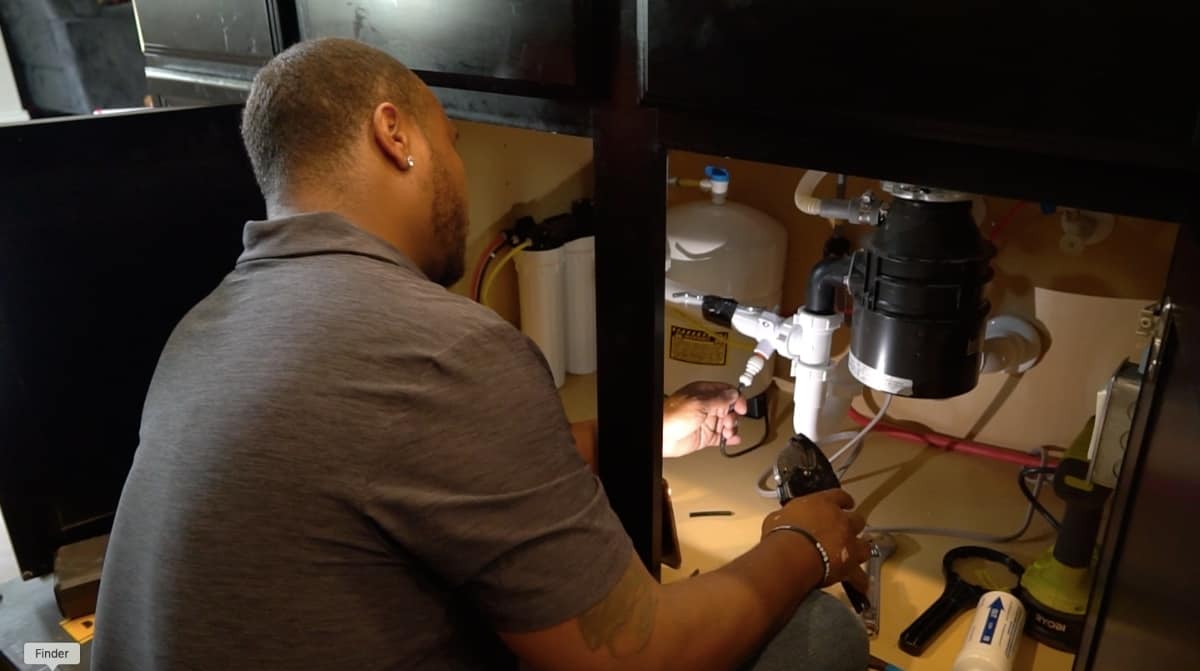Do water filters remove lead? Yes, they can and they do, but ensuring lead-free water isn’t as simple as buying just any filter and installing it. After all, you can filter with anything from a water pitcher filter to a complete home filtration system. You need to use the right type of filter, and you need to make sure it’s installed properly. Depending on what kind of filter you have, you must follow some best practices in maintaining and using your filter.
How Do I Know If There’s Lead In My Water?
Through most of the 1900s, lead pipes and lead solder were used in pipes both in homes and municipal water delivery systems. If your house is a newer one, you won’t have lead pipes. However, you may be using water that comes to you through an older system. Utilities have replaced and continue to replace lead pipes, but the job isn’t finished nationwide.
Here’s another thing to consider. In many cases municipal water standards are not as rigorous as those recommended by the EPA. In most cases, the only way to be certain your water is free of lead and other contaminants is to have it tested. You can set up an appointment with the experts at ONIT to test your water and finally learn what’s in your water. All it takes is simply filling out our contact form so we can learn more about you and your situation. Then we’ll get you set up for an appointment.

What Are the Dangers of Lead?
Lead is harmful to almost every organ in the body. It’s particularly dangerous for the brain. Lead accumulation is related to brain damage, low IQ, and possibly even criminal behavior. Children under seven and women who are or may become pregnant bear the greatest risk. However, lead can cause problems for any person of any age.
Which Water Filters Remove Lead?
There are two basic types of water filters to consider for removing lead in your home:
- Carbon Filters. As water passes through these filters, contaminants bond to the carbon and are drawn out of the water.
- Reverse Osmosis. This is generally used at part of an overall filtration system. The water passes through a membrane and filters out anything larger than a water molecule.
Carbon filters can be categorized into granulated activated carbon filters and carbon block filters. Granulated activated carbon (GAC) is less expensive and is found in many of the popular filters you can buy in a store. However, carbon block filters are more effective. They contain block-shaped carbon under pressure. They force the water through a labyrinth of these carbon blocks. This causes all the water to be in contact with the carbon for a longer time, greatly increasing the amount of lead and other contaminants that are removed.
Carbon block, as opposed to GAC, uses a binding agent that holds the carbon particles in place. This prevents water from “channeling,” or taking the path of least resistance and bypassing the particles. It also produces less carbon dust than GAC and reduces the need for back-flushing.
Reverse osmosis water filtration systems are excellent at eliminating lead and providing whole home water filtration right from your tap. They’re not limited to filtering only the water you pour in a pitcher. They work to remove toxins from all the water entering your home, such as shower heads, kitchen sinks, and bathtubs The system is tough enough to remove more than just lead, too. It can eliminate chemicals such as trihalomethanes, fluoride, and volatile organic compounds.

Proper Installation, Use, and Monitoring
If you want to answer the question, do water filters remove lead, it’s not enough to select a carbon block filter. Think about the following considerations as well:
- Use a filter that is certified by NSF, WQA or another certifying agency to meet standards for lead.
- Make sure the filter is properly installed and maintained. Not everyone installs their filter properly. Even faucet filters, which look simple to screw on, can be tricky. Furthermore, not all faucets fit the filter’s thread, so you may have to use an adapter. It’s easy to screw the filter on too tight or not tight enough.
- Once a filter is in place, keep an eye on it to see that it doesn’t develop cracks. That could allow the water to bypass the filter.
- If your water flow seems to slow down, that may be a red flag. The water might not be pushed through the filter with enough force for maximum effectiveness.
- Consistently run cold water through the filter. High temperatures may make it hard for contaminants to bond to the carbon.
- Don’t expect your filter to last forever. The carbon blocks get full, reaching the point where they can’t bond any more lead. A faucet filter will treat about 100 gallons before this happens. Most filters have an indicator to tell you when they’re at the end of their effective life.

Do Water Filters Remove Lead? Choose an ONIT Solution That Does
Individual filters are of some use, but, as you can see, there’s a lot to consider when choosing and using one. Here’s a more complete solution: let ONIT provide a complete filtration system for your entire home. These systems include a reverse osmosis stage to eliminate lead. An ONIT filtration system will:
- Soften your water.
- Remove up to 99.98 percent of contaminants.
- Save money on bottled water, cleaning supplies and repair and energy expenses due to buildup.
Call 1-833-433-0331 or go online for a free water test and free quote for a professionally installed and warrantied filtration system.



